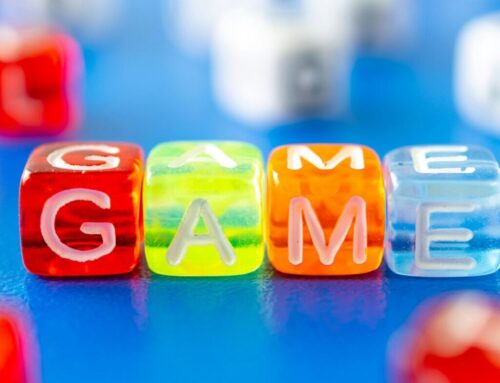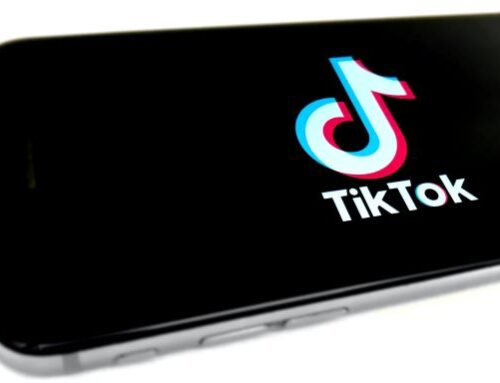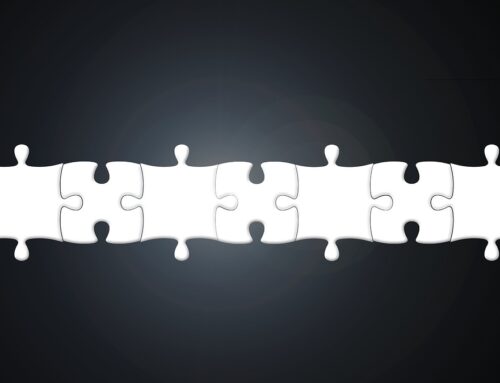In this blog, Dr Steven Hoo explains a student-led initiative to develop skills and foster resilience in addressing the sustainable development goals. The project was one of those funded under the Enhancement Themes mini-projects in 2021.
In today’s rapidly evolving educational landscape, the ability to adapt and thrive in digital environments is paramount. Dr. Hoo Choon Lih (Steven), an Associate Professor from EPS, HWUM spearheaded a project titled “Transformation of Professional Development through Digital Learning” together with Dr. Steven Hammer (GRID) and Dr. Poh Wei Lin (SoSS) and MakerZ Student Club, HW Malaysia. This student-led initiative aimed not only to enhance skill development but also to foster resilience and innovation in addressing sustainable development goals (SDGs). Let’s delve into this transformative journey and its profound impact.
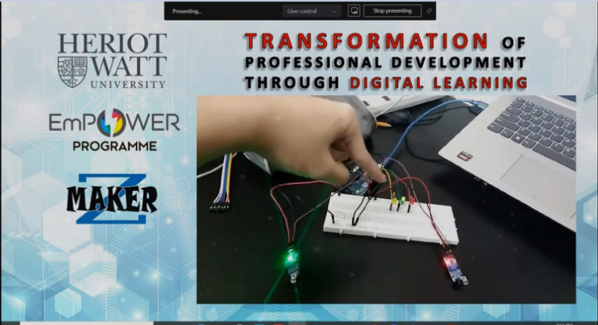
What did we do?
The project unfolded over a series of six meticulously planned sessions, crafted to foster creativity, innovation, and technical proficiency. It commenced with a captivating design inspiration talk delivered by the James Dyson Foundation, providing participants with valuable insights into design thinking and industry best practices. Following this, a series of business pitching workshops were conducted to refine presentation skills and prepare participants for the culminating event – the “Showcase Session.” Here, participants had the opportunity to pitch their ideas and demonstrate prototypes to a panel of judges, facilitating collaboration and constructive feedback.
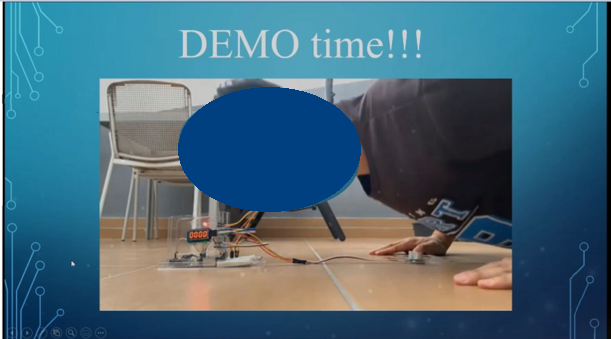 |
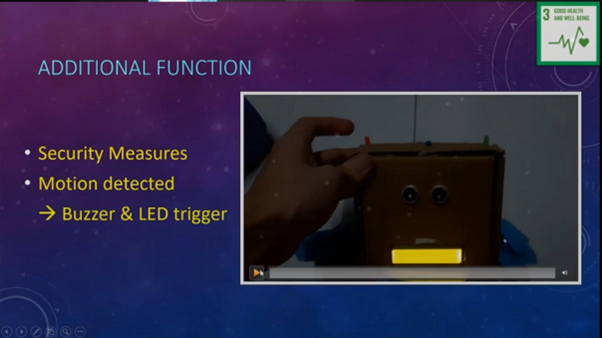 |
The core of the project comprised a series of programming workshops delivered by the MakerZ Student Club Malaysia Campus. These workshops aimed to develop participants’ programming skills from basic to intermediate levels, catering to diverse regional and international audiences. To accommodate this diversity, training modules were designed using both physical programming kits and online platforms such as TinkerCAD, ensuring a comprehensive and engaging learning experience.
Love this workshop and the pitching opportunity!! Looking for next workshops! (Student participant 16)
Such a great and helpful workshop that I learned more about arduino, prototype and coding. (Student participant 17)
Why did we do it?
The onset of the COVID-19 pandemic forced a rapid transition from traditional face-to-face teaching to virtual learning environments. Recognizing the need to adapt to this new reality, Dr. Hoo and his team seized the opportunity to leverage digital learning as a means of building resilience and adaptability among students. By integrating hands-on learning experiences with virtual tools, they aimed to equip participants with the skills and mindset necessary to thrive in remote settings while addressing pressing global challenges, including sustainable development goals (SDGs).
What was the impact of our practice and how have we evaluated it?
The impact of the project was far-reaching, exceeding expectations in terms of participation and engagement. An impressive 90% average attendance rate among participants underscored the project’s relevance and appeal, surpassing pre-pandemic levels. Evaluation efforts focused on assessing cognitive, psychomotor, and affective domains, revealing significant gains across all three aspects post-event. Despite initial challenges posed by the transition to virtual learning, participants demonstrated enhanced creativity, technical proficiency, and adaptability.
…the best experience I had was throughout the workshops, learning the codes in general was very fun to me and I enjoyed it alot and during the 2 days of making a prototype, it felt amazing when I succeeded in making the prototype. (Student participant 26)
I had been wanting to do hands-on projects since forever, and this workshop initiative really helped me to move forward from just my thoughts to actually making my own prototype. The troubleshooting help during the sessions by the instructors/committee was very useful and definitely a plus in our learning process. (Student participant 27)
Additionally, the project facilitated the creation of a resilient learning community, characterized by collaboration, innovation, and continuous growth. Through online surveys and focus group interviews, both participants and organizers provided valuable feedback, enabling ongoing refinement and improvement of the project’s framework and delivery methods.
How could others benefit from this example or approach?
The success of this project offers invaluable insights for educators and institutions seeking to navigate the digital frontier. By prioritizing hands-on learning experiences and leveraging a blend of physical and virtual tools, universities can cultivate resilient learning communities capable of thriving in dynamic environments. Furthermore, integrating project outcomes into academic curricula ensures sustained impact, empowering future generations of learners to address complex global challenges effectively. As we continue to embrace the digital age, let us draw inspiration from Dr. Hoo Choon Lih and his team’s journey, harnessing the transformative power of technology to drive meaningful change in education and beyond.
Images:
Arduino by Daniel Andrade on Unsplash (Public domain).
All other images by Dr. Hoo Choon Lih (copyright).


